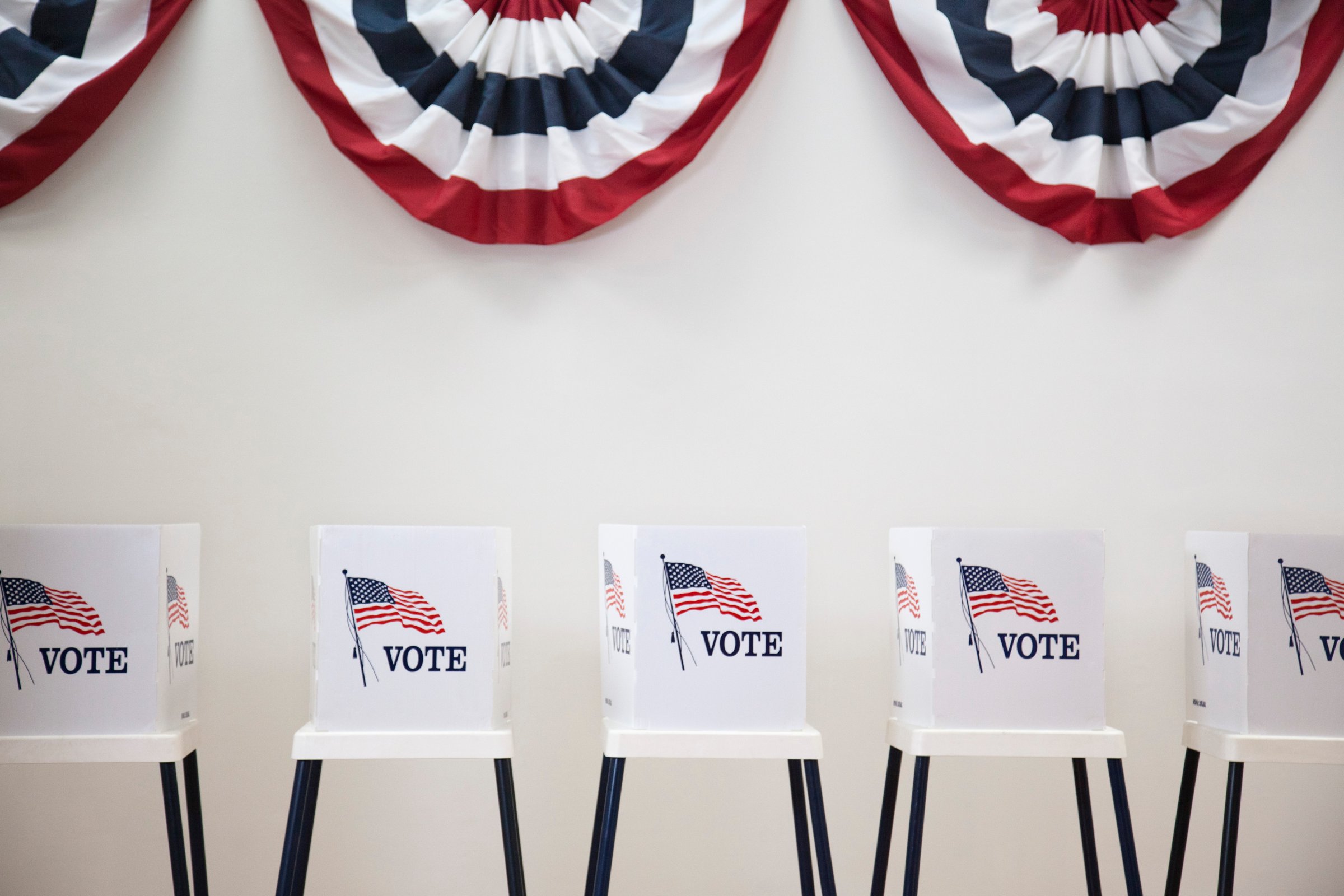
Election Day in the United States is always on the same day of the year—well, sort of.
It is always on a Tuesday in November, and usually the first Tuesday of the month. But about 14% of the time, it isn’t. This year, 2016, is one of those special cases, when Election Day falls on the absolute latest calendar date it legally can.
The reason dates back to an 1845 law that Congress passed requiring presidential elections to take place not on the first Tuesday of the month, but rather “on the Tuesday next after the first Monday in the month of November.”
In an agrarian society where transportation consisted of a horse and buggy, Tuesday made sense farmers could make the trek on Monday instead of Sunday, the Sabbath, and get back home by their market day, usually on Wednesday, as Senate Historian Donald A. Ritchie told NPR a few years ago. Political scientists Larry Sabato and Howard R. Ernst’s Encyclopedia of American Political Parties and Elections adds that there was an effort to make sure that the date didn’t overlap with All Saints Day on Nov. 1 or with the chores and accounting that would traditionally take place on the first of the month, as well.
Combine the desired day of the week with the need to avoid the first day of the month, and there’s the magic formula for Election Day. Because Nov. 1, 2016, is in fact a Tuesday, Election Day is bumped to the second week of the month.
Get your history fix in one place: sign up for the weekly TIME History newsletter
Before Congress established a uniform date for presidential elections, states set their own and “competed with one another for influence by setting their election dates as late as possible, thereby swinging close elections by voting last,” as Yale Law School professor Bruce Ackerman wrote in a New York Times op-ed. At the same time, there were concerns that these states would cast their ballots based on how states holding earlier elections voted.
Beginning in 1875, U.S. House of Representatives elections would starting falling on Tuesdays in even-numbered years, while federal Senate elections would start falling on that day in 1914, after the passage of the 17th Amendment allowing direct popular elections of U.S. Senators by the people of the states they represent, according to Sabato’s book.
Election Day in 2016 falls on Tuesday, Nov. 8.
More Must-Reads from TIME
- Cybersecurity Experts Are Sounding the Alarm on DOGE
- Meet the 2025 Women of the Year
- The Harsh Truth About Disability Inclusion
- Why Do More Young Adults Have Cancer?
- Colman Domingo Leads With Radical Love
- How to Get Better at Doing Things Alone
- Michelle Zauner Stares Down the Darkness
Write to Olivia B. Waxman at olivia.waxman@time.com